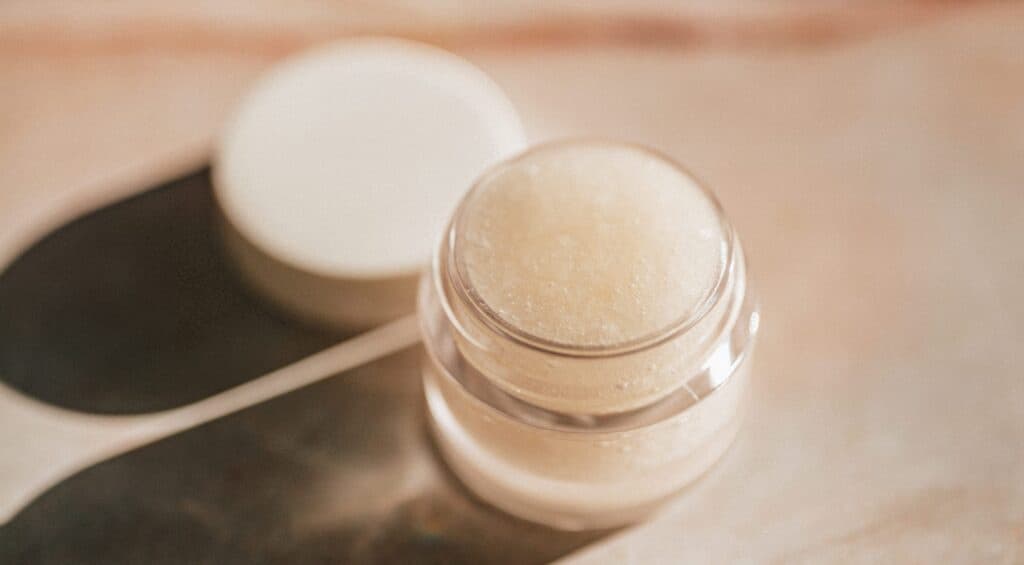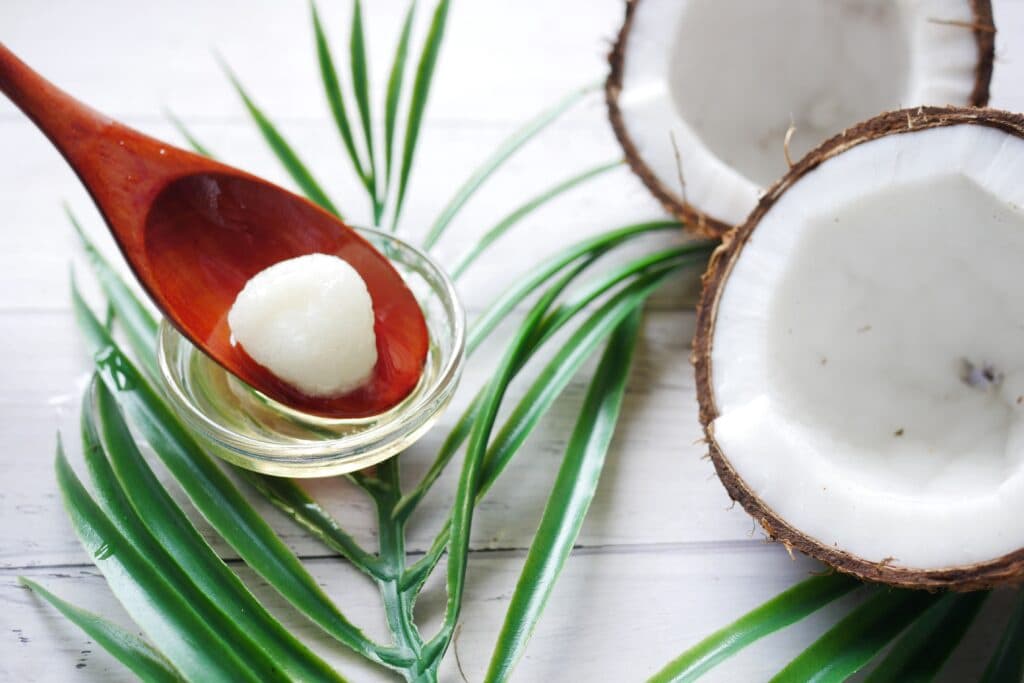Different Types Of Lube And How To Pair Them With Your Sex Toys!


- Why Do We Need A Proper Lube?
- What To Avoid As A Sexual Lubricant
- Different Types Of Lubes
- Using Lube As A Pro!
- Safety Precautions
Even though I’ve said a million times before that silicone is the best material you’ll ever find for a sex toy…there are some other contenders that we can’t really ignore. Glass and steel, for example, make good and hard sex toys. And where sex toys are concerned, one thing that we cannot move forward without is lube. What is the best lube for sex toys? There is no one answer and it strongly depends on the material the sex toy is made from, actually.
Yes, the vagina produces natural lubrication, and also yes, when going through the backdoor, many other things that are not a standard lube are often used. But after you’re done with this article you’ll think twice before using that Vaseline in places it’s not meant to go. (I mean seriously people, it says ‘for external use only’ right there on the cover!)
So, this article will talk about why lube is important. (But only just a bit because in this other article, the bases have already been covered.) Then we’ll move on to the different types of lube. And finally, how we can pair these lubricants with different types of sex toys will be the focus of this article.
To make this easier – because the different types of lubes and the different ways in which they’re different from each other can be a bit too much to remember at times – I’ll try and put it all in short and snappy points. Together with pros and cons, this will be your go-to article whenever you need to know anything about the best lube for sex toys of your choice!
Why Do We Need A Proper Lube?
Going back to that area where you were using Vaseline (or coconut oil) in places it should be forbidden to go, it’s time you knew that a proper lube is not replaceable. A vagina itself is lubricating, meaning it produces a natural kind of lubricant when your body is excited. This is what getting wet usually is.
(The anus too, at times when you’re super excited, lubricates itself. But you must never engage in anal sex without lubrication because it will 100% cause tears in your anal cavity and lead to bleeding.) Nevertheless, due to factors – like stress levels, hormones or old age, or even when you’re taking certain medications – that natural lubrication isn’t always enough. And at times, even when you’re excited a little more help can never hurt.
What To Avoid As A Sexual Lubricant
Now, there are usually two things people pick up when they’re thinking of this extra help. It’s either Vaseline or coconut oil. Let’s quickly go over why they’re unsuitable as sexual lubricants and why you should keep your sex toys away from them.
Vaseline

Vaseline is an oil-based soft, sticky, and smooth ointment. It is usually advertised as something that’ll help with cracked lips and smoothen your skin. One of the factors that contribute to this smoothness is Vaseline’s capacity to stay on the skin for a long time.
For you and I, this translates to, Vaseline as lube will be extremely hard to clean. It’s oily so just water won’t do it. And you should not use any kinds of soap internally so that option is out of the window as well. So the Vaseline will take a long time to clean out of your system.
And do you know what happens when something external, that doesn’t belong to your body, stays inside your body for long periods of time? Infection, that’s what happens. Imagine puss coming out of your anus. Need I say more? I think not.
And not to mention, the Vaseline will also be hard to clean off of your sex toys, making them unfit for use. You can sterilize your sex toys, and you must. But with Vaseline being oil-based which isn’t dissolved in water, there’s a chance that boiling it in water isn’t going to be of much help.
Coconut oil

Coconut oil isn’t artificial so there are some benefits to using it. It’s good for the vagina in its own accord but as a lubricant for sex, not so much. Women who are going through menopause can apply coconut oil to prevent vaginal dryness. It also helps with pain.
Unrefined coconut oil would be great in such cases because it’s completely free of toxins or any artificial elements. But, where sex is concerned, condoms are also concerned. And condoms don’t do well with coconut oils. You see, actual lubes are specifically designed for sex keeping in mind that they’re compatible with condoms.
Anything that isn’t designed to be used as sexual lubricants, might weaken the condom. Even 30 seconds of contact of the condom with the mineral oils present in coconut oil can reduce its efficiency up to 90%. Moreover, the pH of a vagina tends to be more on the acidic side and coconut oil is alkaline (that’s basically the opposite of acidic). So, there’s a risk of infections here as well.
With sex toys, there’s even greater danger of damaging them if you use coconut oil. Not all sex toys are uncomplicated dildo sticks, you know? Some thrusting dildos and vibrating clitoris stimulators might not take kindly to the oil, if in excess. There’s always a chance that coconut oil will be either little or too slippery leading to injury. Take my advice, don’t go there.
When you’re in a pinch and you must get your hands on something to use it as a lube, you might consider using these, but don’t make it a habit. Apart from infections, chances of pregnancy, and stains on your sheets, you also have to worry about some side effects like nausea, eczema, or even diarrhea.
And if you’re allergic to any one of the ingredients in the items you’re using internally, there’s a chance of anaphylaxis right there. Therefore, now that I’ve properly warned you, let’s move on to the section where you’ll actually learn what to use and when.
Different Types Of Lubes
There are predominantly three types of lubricants available in the market. This section will help you pick out the kind that will be most suitable for your needs.
Water-based lubes
You’ve gotta love them, they’re everywhere and water is the main ingredient here. They’re very much like a vagina’s naturally produced lubricant as well.
Pros:
- They’re compatible with almost every kind of sex toy, so they’re also called versatile lubes.
- No negative effects on a condom. This kind of lube does not weaken or damage the condom, rather it is said to increase a condom’s longevity.
- Never leans a stain and is extremely easy to wash off after your sexual encounters.
- The texture is smooth and non-clumpy.
Cons:
- It dissolves really fast in the water. So if you’re into shower sex or any kind of sexual activity that includes water, you’ll have to keep reapplying. At times, this can be a bummer.
- This is not the ideal kind of lube for anal sex. For anal sex, you want something that’s a bit more sticky.
Water-based lubricants are best used with fleshlights and similar masturbators for males and women can use them with vaginal/clitoral stimulators without a doubt!
Oil-based lubes
The main ingredient here is oil so they might not be as watery as a water-based lube, but the texture is still smooth and not much clumpy. Mineral oil and petroleum jelly might also fall in the category of oil-based lubes. But we all know they’re not really lubes that we can use regularly.
Pros:
- They’re perfect for sexual activities that involve water!
- Oil-based lubes can also be used for giving sensual massages because of their thick textures.
Cons:
- They’re not compatible with latex, hence they might be good for condom-less sex (which isn’t recommended). You can use them with sex toys pretty safely though.
- Is not compatible with sex toys that might contain latex. Always check the list of ingredients before using lube or a sex toy.
Silicone-based lubes
Well, this type of lube is silicone-based so that means its main ingredient is silicone. And silicone is pretty much an all-rounder. They’re as smooth as water-based lubes and not clumpy at all.
Pros:
- They’re perfect for sex while you’re in the shower.
- They’re ideal for anal sex. You don’t need to reapply it many times, just use a generous amount, to begin with.
Cons:
- They’re not compatible with sex toys made of silicone.
- They’ll leave stains on your sheets so keep some spare sheets handy.
- They might be a bit harder to clean than other types of lubes.
I know, you must be thinking, if this lube is not compatible with silicone-based sex toys, how is it an all-rounder even? Well, those glass and steel dildos that you’re so eager to use on your anal cavity, need the silicone-based lube. You can use a condom in case you plan to use the same dildo with multiple partners! And that’s why silicone-based lubes make us all happy they exist.
Using Lube As A Pro!
So what is it actually like to use lube? Well, for beginners, you wouldn’t know what hit you. It’s slippery alright, but it’s also really effective. Some lubes have a distinctive smell, and sometimes they can also be a bit sticky when left on the skin for too long. But that’s nothing to worry about.
Washing the lube off can be challenging for some people. Especially if the lube is inside you, in the case of people with vaginas. The vaginal cavity itself is so slippery after you’ve had a good session of mind-blowing sex – which you will, courtesy of the lube. You’ll need extra water and gentle rubbing.
My tip is, to use the hand shower or a water source that pushes the water out with some force. You must not use any kind of soap to clean the lube inside you. You can use soap on other body parts, mostly externally. But for private parts, avoid soap or even any kind of an intimate wash. Plain water ought to do it.
Another thing to keep in mind is, that you can be generous with the lube. Be as generous as you want to be. Bathe your body parts in lube if you must. I say this because lube is completely body-safe and superb for first-time users of sex toys or even for people who are engaging in sexual activities for the first time.
Don’t Forget The Safety Precautions!
The most important thing you should take notice of is the expiry date and the ‘best before’ duration, once opened. The expiry would be about 2-3 years or so, but that doesn’t mean you can open up the pack or the bottle, use some lube today and keep the rest locked in the cupboard because you have 13 more months to go.
Once opened, a lube should not be used for more than 3 months. Unopened, it might remain with you for months or even a year – check the expiry date to see how long it will remain safe to use. But once opened, the lube should be used best before 3 months are over. It’s because lubes might react to the surroundings they are kept in or subjected to.
At times, bacteria can start to grow in an opened bottle of lube. And because lube will go in your private parts, it’s best to be safe and keep a track of the best before the date. When you open up a bottle or a pack of lube, make a mental note of the present month and the number of months you have. After that period is over, simply throw the lube away.
To Conclude…
Well, here’s what you need to know in a shell: When going without a condom while using a sex toy for anal sex, use oil-based lubes. When using a sex toy for your vagina, with or without a condom, use water-based lubes. And when you’re in the mood for vaginal or anal penetration with a sex toy other than which is made of silicone (glass/crystal sex toys or steel dildos), with or without a condom, always pick silicone-based lubes! However, if you’re going to play with a silicone toy, the best lube for sex toys made from silicone is water-based.



